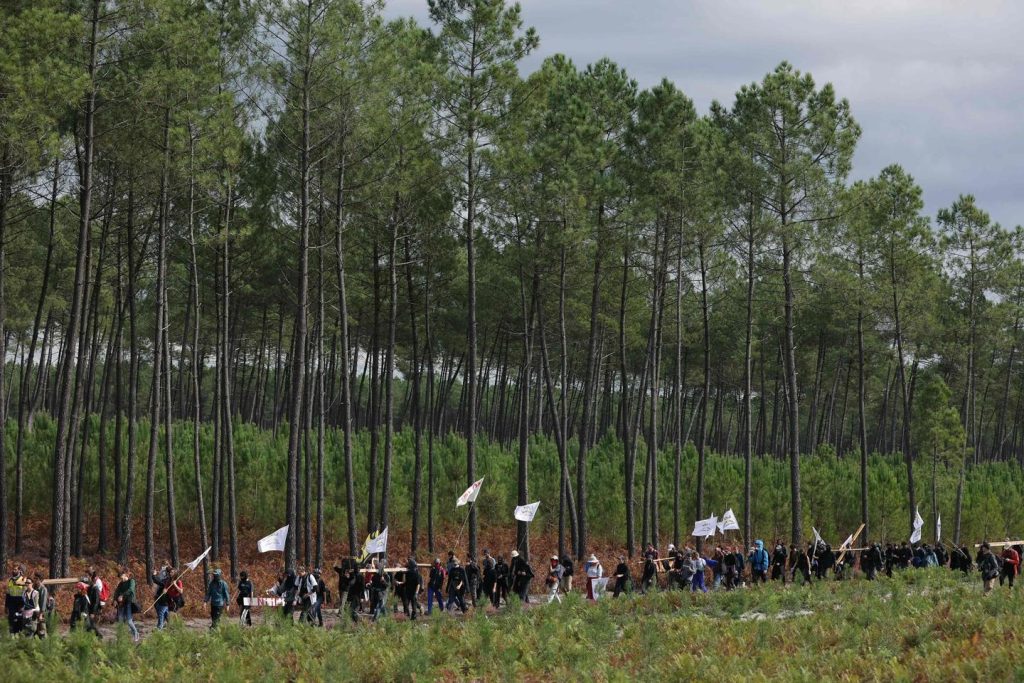Opponents to the future high-speed rail line (LGV) in the Southwest of France, between Bordeaux and Toulouse, gathered in Lerm-et-Musset on October 12, 2024, with the support of the environmental movement called Soulèvements de la Terre. The protest aimed to amplify their movement against the project that aims to connect Paris and Toulouse by 2032. The gathering, which was not authorized by the authorities, saw around 800 to 1000 people, including a significant number of radical activists wearing masks, coming together to voice their opposition to the multi-billion euro project.
The protest involved various activities in opposition to the planned railway line that would connect Bordeaux, Toulouse, and Dax, with organizers claiming 1500 participants. A wooden tower was constructed as a lookout post in the valley of Ciron, an area threatened by the LGV and classified as Natura 2000. The authorities were prepared for a larger turnout and potential violence, with weapons such as crossbows, rifles, and bocce balls being confiscated during pre-checks. Despite the strong opposition, the local prefecture has made it clear that they will not allow the establishment of a ZAD (Zone to be Defended) on the future route of the railway line.
While the high-speed rail project is supported by many local authorities in Occitanie and Nouvelle-Aquitaine, it has faced longstanding and diverse opposition from various groups including local residents, farmers, and elected officials. Opponents of the project have reached out to Soulèvements de la Terre to help elevate their cause on a national level, drawing on the movement’s previous actions against controversial irrigation projects. The goal for the protestors is to raise awareness about the environmental and economic impacts of the LGV and prevent its construction through widespread mobilization.
Some protestors advocate for legal avenues of opposition, following the lead of local parliamentarians who are calling for a moratorium or local referendum on the LGV project. Scheduled to be completed by 2032, the high-speed rail line would significantly reduce travel times between Toulouse and Paris, diverting passengers from air travel. However, opponents argue that the project would have devastating consequences, with the artificialization of thousands of hectares of land and the imposition of a special tax on nearby communities for funding the construction.
President Alain Rousset of Nouvelle-Aquitaine defends the project as a long-term investment that would benefit the region by reducing road traffic and improving freight transport. Despite these claims, critics continue to denounce the LGV as a destructive and unnecessary endeavor that would harm the environment and local communities. The debate between supporters and opponents of the high-speed rail project reflects larger tensions around infrastructure development, environmental preservation, and public protest in France.


